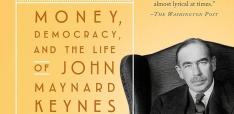Illicit Financial Flows: What’s the smartest post-2015 target?
The Post-2015 Consensus has published a second set of papers this time focused on Illicit Financial Flows in the post-2015 development agenda.
Did you know that Africa has been a net creditor to the world over the period 1980-2009 to the tune of up to $1.4 trillion?
If we think about development priorities for the next 15 years – with the Millennium Development Goals expiring in 2015 –, adequate nutrition and basic education immediately come to mind. Illicit financial flows (IFF) would not be top priority, but in a paper for the Copenhagen Consensus Center, economist Alex Cobham argues that they are important enough to be included in the post-2015 goals now being debated by the international community.
The paper provides a tentative analysis of the measures proposed by the UN High Level Panel, finding that while the Panel's recommendations are flawed, there are potentially powerful post-2015 targets which could ensure the framework delivers major progress in reducing illicit financial flows, including tax evasion and theft of state assets.
"The specific [UN High Level Panel] proposal is flawed – but this does not imply that it should be dropped, rather that alternatives be developed."
- Alex Cobham
If we look at the costs of IFF, he clearly has a point: 20 sub-Saharan Africa countries are estimated to have lost more than 10% of their GDPs since 1980, while Africa as a whole is still estimated to be losing 3.4% of GDP, that is, US$76 billion each year.
Illicit cash flows are not necessarily strictly illegal. Money laundering – transferring the proceeds of crime through apparently legitimate channels – is clearly illegal and the subject of stringent checks in the banking sector. Abuse of power by kleptocratic regimes to skim off a country’s wealth into Swiss bank accounts at the expense of the rest of society is morally wrong and often also criminal.
What is less clear-cut is the avoidance of tax; while being legal in the strict sense of the word, this is frowned on by society. Recently, this has become a big story in some countries as multinational companies have, quite legitimately, minimized their tax liabilities by being registered in a low-tax country and declaring their profit there while in practice doing most of their business elsewhere.
While public exposure is often enough for companies to change practices to protect their reputation, Alex Cobham – research fellow at the Center for Global Development – suggests transparency should be achieved via statutory public registers rather than investigative journalism and naming and shaming.
The key to the best target “reduce to zero the legal persons and arrangements for which beneficial ownership info is not publicly available” is making all beneficial ownership public. This target is estimated to return $49 for every dollar spent
Overall, the paper makes three proposals: (1) to make public full details of company ownership (that is, no shell companies with the real owners remaining hidden), (2) ensure that there is automatic exchange of tax information between jurisdictions and (3) require multinationals to report on a country-by-country basis. This transparency should greatly reduce illicit transfers.
However, transparency proposals have to be as closely adhered to universally as possible, if there is to be a substantial impact – otherwise more money will simply pass through other channels which remain open. The precedent of the existing anti-money laundering framework is not reassuring.
In an ideal world, it would not be possible for criminals to move their money about with impunity; neither should companies and individuals pay less tax than society deems to be fair in comparison with others. It is now up to us to consider whether it is worth putting scarce resources into trying to make the financial world more ideal, or whether there are better ways to use them.
The assessment paper by Alex Cobham was also peer-reviewed in perspective papers by Peter Reuter of Maryland University, School of Public Policy, and Tom Cardamone, Managing Director and Dev Kar, Chief Economist at Global Financial Integrity, one of which proposes its own best target to combat Illicit Financial Flows "reducing illicit financial flows related to trade mis-invoicing by 50%," which is estimated to give a benefit of $26 for every dollar spent.
In addition to these perspective papers, NGOs and stakeholders such as UNODC and Policy Forum present viewpoint papers concerning Cobham’s analysis.
You can read the all the reports at www.post2015consensus.com/illicitfinancialflows


